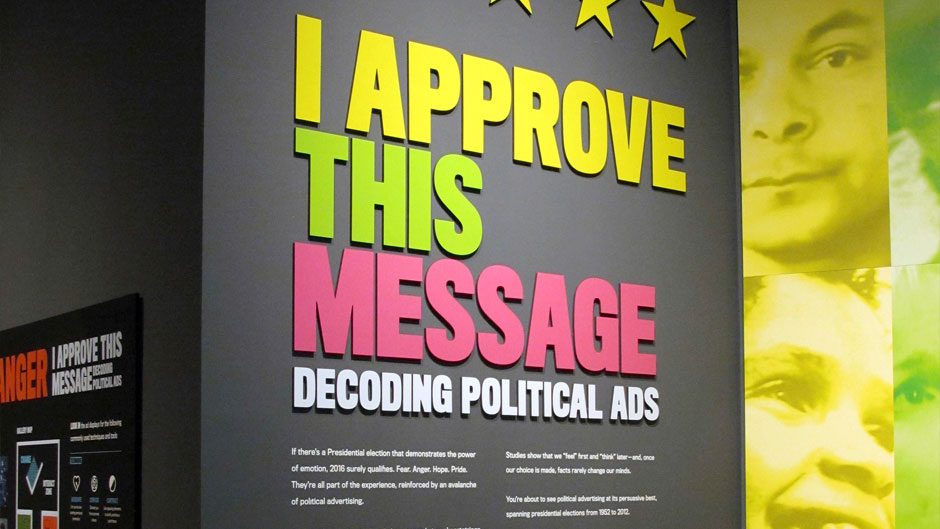by Roy Eidelson
Successful persuasion frequently follows either of two very different paths.
KEY POINTS
- Some forms of persuasion rely on logical arguments while others effectively tap into emotions, making people fearful, angry, or optimistic.
- Emotional political ads aim to steer votes by appealing to concerns related to vulnerability, injustice, distrust, superiority, and helplessness.
- Political candidates may exploit these concerns for the specific purpose of gaining or retaining office in order to advance narrow interests.
Over the next two weeks, political campaign ads on TV and radio will inundate us. Each one purporting to highlight the glorious virtues of one candidate or the fatal flaws of another. Although typically less than a minute in length, for better or worse these sales pitches are often effective nonetheless. Here are a few reasons why.
Decades of research by psychologists have shown that successful persuasion frequently follows either of two paths. The first route engages the listener or reader in a careful, rational evaluation of the arguments presented. We review the evidence, assess which claims seem to make sense and which do not, and then draw our conclusions accordingly. With this route, we also try to distinguish between strong arguments and weak arguments. It’s an approach that has a lot to offer in getting to the truth. But it can require significant time, effort, and discernment—elements that are in short supply when we’re in a hurry or when important background information isn’t readily available.
Related: Willie Horton Ad Was Big, but
In sharp contrast, there’s a second alternative persuasion route that also succeeds quite often. With this path, our judgments aren’t really based on the actual merits of the arguments we hear or read. Instead, the critical factor is the extent to which the message effectively taps into our emotions, perhaps making us fearful, or angry, or optimistic. This spike in emotional arousal is often a primary goal of the persuader because it can lead us to ignore the actual quality of the evidence that’s being presented. It’s this second persuasion route that most political campaign ads rely on.
As a psychologist, in my own work, I’ve tried to figure out which of our concerns tend to be most influential when it comes to determining how we think and act. What I’ve found is that five specific core psychological concerns are especially important in how we make sense of the world around us: namely, concerns related to vulnerability, injustice, distrust, superiority, and helplessness. Not surprisingly, these five are therefore frequent targets in emotion-arousing political ads that aim to get us to vote a certain way. Let’s briefly consider each in turn.

Vulnerability: Are We Safe?
Whether as passing thoughts or haunting worries, we wonder if the people we care about are safe, and if there might be danger on the horizon. Right or wrong, our judgments on these matters go a long way in determining the choices we make and the actions we take.
Injustice: Are We Treated Fairly?
Concerns over just treatment are also a potent force in our lives. Cases of real or perceived mistreatment — from minor slights to profound abuses — stir anger and resentment, as well as an urge to right wrongs and bring accountability to those we hold responsible.
Distrust: Who Should We Trust?

Consciously and unconsciously, we tend to divide the world into people and groups we find trustworthy and others we don’t. Where we draw that line matters a lot. But we usually make these judgments with only limited information of uncertain reliability.
Superiority: Are We Good Enough?
We’re quick to compare ourselves to others, often in an effort to demonstrate that we’re worthy of respect. Sometimes this desire is even stronger: We want to be told that we’re better than others in some important way.
Helplessness: Can We Control What Happens to Us?
Feelings of helplessness pose an obstacle to any undertaking. Believing we can’t control important outcomes in our lives leads to resignation, which wrecks our motivation to work toward crucial personal or collective objectives.
Given their power to affect our behavior, including at the voting booth, it’s no surprise that these five concerns figure prominently in current political ads, regardless of whether the topic is the economy, healthcare, race relations, reproductive rights, the military budget, or any other pressing issue. Vulnerability-focused ads are designed to either frighten or reassure us. Injustice-focused ads try to shape our views of what’s right and wrong. Distrust-focused ads praise one candidate’s honesty and deplore another’s deviousness. Superiority-focused ads are created to make us feel special and proud as Americans. Finally, helplessness-focused ads target our sense of potential and possibility.
To be clear, there’s nothing intrinsically wrong with campaign ads that highlight these five issues. After all, since these are our core concerns it makes sense that they should be front and center when it comes to matters of public policy and the general welfare. However, it’s deeply problematic when political candidates exploit these concerns for the specific purpose of gaining or retaining office in order to advance narrow interests that run counter to the common good. Unfortunately, that isn’t unusual. In short, “Buyer Beware” is an especially valuable recommendation this time of year.

